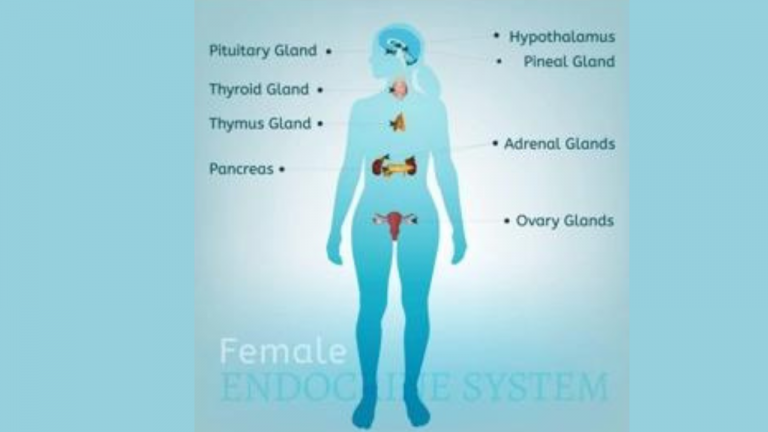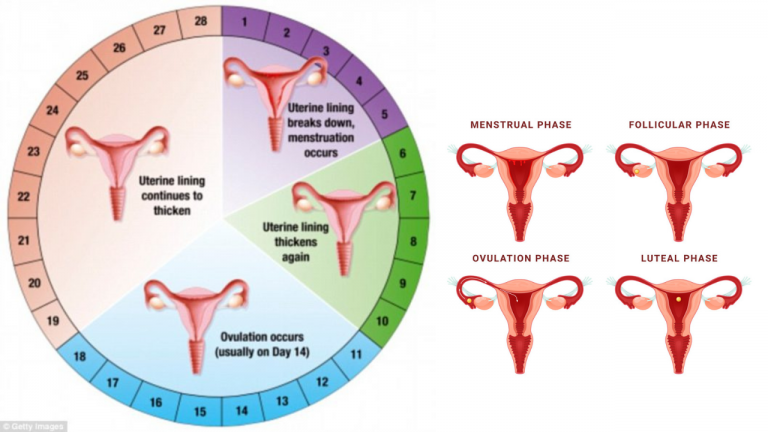Is It Normal to Miss a Period?

Is it normal??
There are many reasons why a woman may miss her period, or why periods might stop altogether
Most women have a period every 28 days or so, but it’s common to have a slightly shorter or longer cycle than this (from 21 to 40 days).
Some women do not always have a regular menstrual cycle. Their period may be early or late, and how long it lasts and how heavy it is may vary each time. There are a number of reasons why your periods can stop. The most common reasons are:
pregnancy
stress
being overweight
doing too much exercise
taking the contraceptive pill
the menopause
polycystic ovary syndrome (PCOS)
some underlying medical conditions
Periods can also sometimes stop as a result of a medical condition, such as heart disease, uncontrolled diabetes, an overactive thyroid, or premature menopause.
Let’s talk about the relationship between obesity & missed periods
Being overweight can affect your menstrual cycle. can not always will. If you’re overweight, your body may produce an excess amount of estrogen which can cause your periods to stop
Also if you are overweight you are more prone to get PCOD/PCOS which in turn can lead to menstrual problems.
Please note that stress is also one of the major causes of missed periods. Do not get panicked. Wait for another month or two. Sometimes it happens and gets resolved on its own
Make sure you get into your healthy weight even before starting with any menstrual complaints. One more important thing is to make sure you follow a healthy diet cause here you are already suffering enough. This is not the time to go for crash diets as it can lead to further health conditions.
Don’t immediately jump into pills to regulate your periods. Remember those pills induce fake periods and don’t really treat your root cause.
I had been there where my periods stopped for almost 5 months due to my faulty lifestyle. But slowly everything went back to normal when I started working on my health. Hence I urge you to go for natural solutions.
While the impact that obesity has on your menstrual health is undeniable, it is important to understand that it is also well within your control & you can reverse it.
When to see your general practitioner GP
See your GP if you’re not pregnant – you’ve had a negative pregnancy test – and you’ve missed more than 3 periods in a row.
If you’re sexually active and you have not taken a pregnancy test, your GP may advise you to take one.
They may also ask you about:
- your medical history
- your family’s medical history
- your sexual history
- any emotional issues you’re having
- any recent changes in your weight
- the amount of exercise you do
Your GP may recommend waiting to see whether your periods return on their own. In some cases, you may need treatment for your periods to return.
You should also see your GP if your periods stop before you’re 45 or if you’re still bleeding when you’re over 55.
Referral to a consultant
If your GP thinks a medical condition might have caused your periods to stop, they may refer you to a consultant who specializes in the condition.
Depending on what your GP suspects are causing the problem, you may be referred to:
- a gynecologist – a specialist in treating conditions that affect the female reproductive system
- an endocrinologist – a specialist in treating hormonal conditions
You may have a full gynecological examination and various tests, including:
- blood tests – to see whether you have abnormal levels of certain hormones
- an ultrasound scan, CT scan, or MRI scan – to identify any problems with your reproductive system or the pituitary gland in your brain
Treating underlying conditions
If test results show a medical condition has caused your periods to stop, you may be offered treatment for your condition.
For example, if the cause is PCOS, you may be advised to take the contraceptive pill or tablets containing a hormone called progesterone.
If the cause is early menopause (premature ovarian failure), this means the ovaries no longer function normally. Hormone medicine is usually recommended. Treatments may include the contraceptive pill or hormone replacement therapy (HRT).
If you have an overactive thyroid gland, you may be given medication to stop your thyroid from producing too many hormones.



